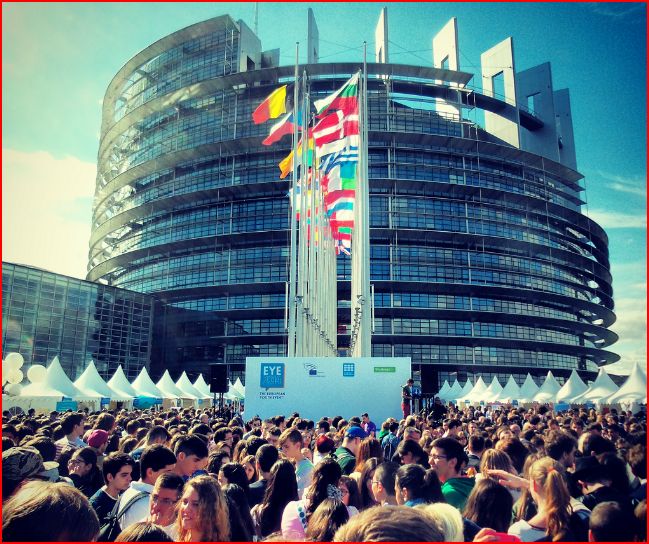Important things can sometimes go completely unnoticed. Over the last few years national parliaments and European institutions are increasingly behaving as if they were the excecutive bodies of global financial institutions. Core reforms for the banking sector were negotiated in the Basel Committee of central banks. During the work on financial market reforms, key elements were dealt with in the Financial Stability Board on behalf of the G-20. The latest steps against tax dumping by multinational corporations were drawn up by the OECD on the request of G-20.
Results of global institutions still have to become European and national laws before entering into force. Yet, practically it is hard to deviate significantly from global standards. This is because stronger standards can be denounced as a disadvantage in global competition even if this is actually often misleading.
Therefore, the democratic influence of the European Parliament on economic and financial policies is constrained. But now we fight back. Led by the liberal MEP Sylvie Goulard we have adopted today together with Conservatives, Social-Democrats and Liberals a report that demands our full rights. The decision contains many Green amendments which I had negotiated as Green shadow rapporteur.
In the European Parliament’s decision we support the globalisation of standards, especially with regards to financial markets. Yet, we demand that global institutions themselves have to be democratic, transparent, accountable and clean. Additionally, we ask the European Commission to comprehensively inform, also in advance, the European Parliament which position the Commission will represent in those institutions.
It is significant that the report was endorsed by a broad pro-European majority. The right-leaning conservatives and unfortunately also the leftist GUE group rejected the report, since its proposals would intervene too much into national sovereignty. Specifically in the areas of financial market regulation and the fight against tax evasion, this perspective is ridiculous: transnational corporations play off states against each other. We need a democratic control of globalisation and our report is a step towards this objective.
Specific demands of the European Parliament which are included in the report:
- Europe should speak with one voice in international institutions, especially the members of the Eurozone;
- standards which ensure transparency, acountability and integrity for all international organisations in the areas of economic policy and finance;
- obligatory lobby registers for these organisations;
- active and balanced involvement of consumer organisations, labour unions and organisations representing small and medium-sized enterprises (SMEs);
- access to documents of these international organisations for citizens;
- code of conduct to ensure transparency, accountability and integrity for EU participation in international organisations, this approach must include a strong involvement of the European Parliament;
- establishment of a “Financial Dialogue” to make EU representatives in international organisations accountable to the European Parliament; this dialogue should be built on an interinstitutional agreement between the European Parliament and the European Commission;
- in the framework of the G-20 EU positions in areas, such as employment, energy, trade, development policy and anti-corruption policies, must be made coherent;
- initiative to establish a global financial institution, based on a multilateral treaty, similar to the World Trade Organisation
Please find the report voted by the European Parliament’s ECON committee here: https://sven-giegold.de/report_voted_econ_a8-0027_2016_en/
We are referring to the following international institutions:
The Bank for International Settlements, the Financial Action Task Force (FATF) and the World Trade Organization (WTO) also have a rule-making function; the United Nations Conference on Trade and Development (UNCTAD) plays a significant role in global economic governance; the African Development Bank (ADB), the Asian Development Bank (ADB), the Caribbean Development Bank (CDB), the West African Development Bank (WADB), the Inter-American Development Bank (IDB), the Inter-American Investment Corporation (IIC), the European Bank for Reconstruction and Development (EBRD), the Council of Europe Development Bank (CEB), the World Bank Group, the International Bank for Reconstruction and Development (IBRD), the International Development Association (IDA), the International Finance Corporation (IFC) and the Multilateral Investment Guarantee Agency (MIGA) support the financing of development cooperation.

